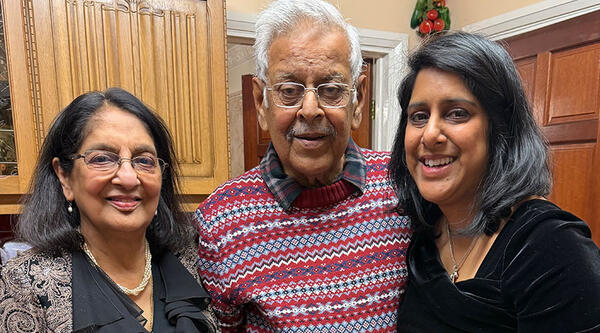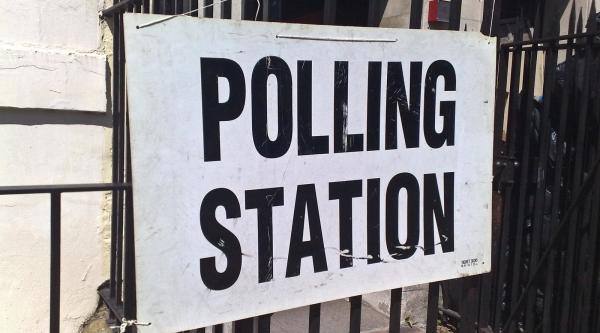The care needs assessment: support for people with dementia
This page looks at how a person with dementia can get a care assessment, who does an assessment, how they are carried out, who makes the decision, and tips for making the most of the care needs assessment. It also explains the eligibility criteria.
Assessment for care and support
- Assessment for care and support in England
- You are here: The care needs assessment: support for people with dementia
- The carer's assessment: support for carers
- Financial assessments
- Organising and reviewing care and support
- Assessment for care and support - useful organisations
Support for people with dementia: a care needs assessment
Anyone with dementia is entitled to an assessment of their needs by the local authority. This is called a care needs assessment. It should identify what the person’s needs are, and what support would meet these needs. It also helps the local authority to decide whether or not they will pay towards meeting these needs.
The local authority cannot refuse to carry out an assessment, even if they think the person will have to pay for their own support and care. The information in the assessment will be helpful, even if the local authority does not pay towards the care and support. You can use the information to discuss care and support needs with other organisations and companies such as home care agencies.
How do I get a care needs assessment?
There are a number of ways someone can get an assessment. The person with dementia can ask for one themselves. You can also ask your local authority’s social services department for one on their behalf.
This department may be called different things in different areas – for example, ‘adult services’. You can find their contact details:
- on a council tax bill
- online
- at the GP surgery
- at the local library.
Other people can also arrange the assessment on behalf of the person, such as:
- the person’s GP, consultant, or another health or social care professional such as an occupational therapist
- carer or relative
- hospital social worker (if the person is in hospital).
If you ask for an assessment on behalf of someone, you must get their consent first. Some people with dementia may lack the ability (mental capacity) to give this consent. You can still ask for an assessment, as long as it is in the person’s best interests.
For more information on this see Mental Capacity Act 2005.
Who does the assessment?
The local authority adult social services department will carry out most assessments. This will normally be done by a social worker or a care coordinator (they may be referred to as an assessor). They may ask for other professionals to be involved, for example, the person’s doctor or a nurse.
What happens at the assessment?
A care needs assessment will include answering questions, which should be given in advance. They will help the local authority to find out:
- where the person lives and what care they currently receive
- if the person has any health conditions, and what they can and cannot do for themselves
- the person’s views about their support, and how they would like to be supported. For example they might want to go to a day centre or have someone help them with shopping
- the carer’s views.
These questions and answers are then discussed together with those present at the assessment. However not all assessments are done face-to-face. They may be done through a self-assessment questionnaire.
What is the self-assessment questionnaire?
Sometimes an assessment is done through a questionnaire which the person completes themselves. The person you care for might need help to fill out a self-assessment questionnaire. You or a social worker can help them at home, to make sure that all their needs are considered.
You can ask the local authority for support if the person with dementia needs it. Here are some organisations and charities which may also help with this.
What are telephone assessments?
Assessments can be carried out over the phone. However, this is only appropriate if the person is already known to the local authority and the assessment is a result of a change in their needs, or if their needs are not complex. People with dementia often have more complex needs, such as needs that can change on a daily basis.
Therefore, telephone assessments should not be used as the only way of assessing their care needs. If the person with dementia is offered a self-assessment questionnaire or telephone assessment, they can ask to have the assessment in person. They should explain why they need a face-to-face assessment.
If a face-to-face assessment is still not offered, they can make a complaint about the lack of support they are receiving in having their needs assessed.
Where does the assessment take place?
A face-to-face assessment usually takes place in the person’s home. This can help the assessor to know what care and support they need. If the assessment is arranged elsewhere, it should be somewhere convenient for the person and you, their carer.
Tips for the care needs assessment
If the person with dementia is having a care needs assessment, there are some things that can help them to prepare for it. If the person has got the assessment questions it’s a good idea for them to look through them and think about their answers. If the person hasn’t been given the questions, contact the local authority and ask for a copy.
It can help for the person to make notes so that they can tell the assessor what support they need. It might seem like a lot for the person to think about, but even noting down some of the details listed below will help them to get more from the assessment. A carer can help the person prepare for an assessment and might also find these tips useful.
Preparing for the assessment
- A diary with details of what daily tasks the person needs help with can be helpful.
- What support does the person currently get from family and carers? This is important because even if the person continues to get care and support from others, the conversation should cover what would happen if they could no longer give this support.
- Is there any equipment or assistive technology that would help? For example, an automated pill dispenser, or ‘smart’ home systems that can be set up to turn off lights.
- What care and support might the person need in the future as their condition gets worse? This can include equipment and assistive technology.
- Collect any letters from the GP or other professionals. This is called ‘supporting evidence’. For example, if the person has problems with getting about or walking, the GP might suggest ramps, grab rails, or help with shopping.
- Make a list of any medication the person is taking and what conditions they are for.
- Make sure any carers or relatives that the person would like to be at the assessment are available.
- Think about what care and support would help and share this in the assessment. It doesn’t necessarily mean the person will get it, but the assessment should consider it. As well as practical care, think about equipment and other items such as assistive technology devices.
During the assessment
- Be honest. Some people feel they need to hide the problems they are having from professionals. However, the point of the assessment is to see how the person’s needs can be met.
- Tell the assessor if there are things the person wants to do. For example:
- be more active
- stay living at home as long as possible
- engage more with the community by attending social groups and events
- have some help with shopping, going for walks or swimming.
What happens after an assessment?
Once a care needs assessment has been completed, the local authority will decide if it will pay for care and support for the person. They will consider whether the person has an ‘eligible care need’, and also their financial situation.
A person must have an eligible care need for the local authority to consider paying for their care and support. These care needs are organised into ‘criteria’ (conditions) which apply across England.
If the person you care for is told that they do not have eligible care needs and you believe they do, you will need to make a complaint. You should explain why you think their needs do meet the criteria.
Will the local authority fund care and support?
There are three criteria (conditions) that someone must meet for the local authority to consider funding their care and support.
The person will have eligible needs if:
1. They have care and support needs because they have a physical or mental condition (this includes dementia).
2. The person’s needs mean they are unable to do at least two of the following:
- Manage and maintain nutrition – for example, buying and preparing food and eating and drinking.
- Maintain personal hygiene – for example, washing themselves and their clothes.
- Manage toilet needs – for example, getting to and using the toilet or changing incontinence pads.
- Be appropriately clothed – for example, dressing themselves in clothes suitable for the weather and their needs.
- Be able to make use of their home safely – for example, moving around the home safely (including going up and down stairs), using the kitchen, getting to and using the bathroom and being able to enter and leave the house safely.
- Maintain a habitable home environment – for example, keeping the home clean and safe and being able to manage and pay the bills.
- Develop and maintain family or other personal relationships – for example, staying in touch with others so they don’t become lonely or isolated.
- Access and engage in work, training, education or volunteering – for example, attending a course or volunteering.
- Make use of necessary facilities or services in the local community including public transport – for example, getting to doctors or other healthcare appointments, using public transport and local services or shops.
- Carry out any caring responsibilities – for example, caring for any children or grandchildren they have.
The person is considered unable to do these things:
- if they cannot do them without help
- if they can do them without help, but it causes them pain, distress, anxiety or puts them (or someone else) in danger
- if it takes them much longer to do them than you would expect.
3. Because of not being able to do these things there is, or is likely to be, a significant impact on the person’s wellbeing.
- Page last reviewed:







